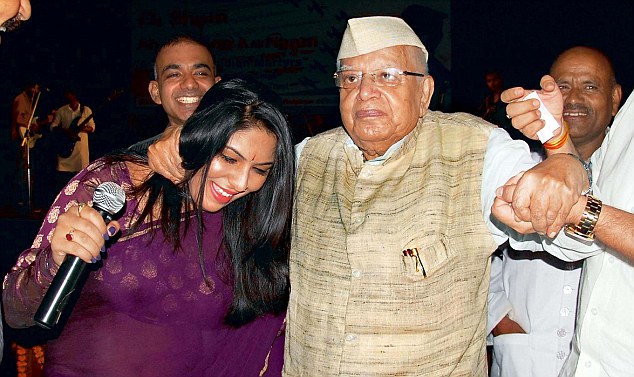
Tiwari was also chief minister of Uttar Pradesh. In 1986–1987, he served in prime minister Rajiv Gandhi's cabinet as minister for external Affairs. He was serving as governor of Andhra Pradesh from 2007 until 2009, when he was forced to resign following a sex scandal.
The octogenarian politician embarrassed organisers of a programme here on Sunday as he climbed the stage and started dancing with a woman singer, who was singing paeans to martyrs. The programme was organised to honour sacrifices by the martyrs.
Eye-witnesses said Tiwari “forced” the singer to dance with him.
The incident, which happened soon after the woman finished singing, put the organisers in “a very difficult position.” They had a tough time persuading Tiwari to return to his seat. Officials are apparently finding it difficult to cope with Tewari’s night trips.
Tiwari, who has been living in the state capital for the past few months, has been seen taking late night tours of the city, inspecting police stations and hospitals to check if the officials were discharging their duties properly. A few days ago, he arrived at a police station late in the night, inquiring about lady constables. He also visited hospitals to check if doctors were discharging their duties.
The bonhomie between Samajwadi Party supremo Mulayam Singh Yadav and Tiwari has fuelled speculation about the duo working together in the ensuing Lok Sabha elections. Both Mulayam and his son, Uttar Pradesh Chief Minister Akhilesh Yadav, had met Tiwari for a closed-door meeting earlier.
Though they called the meeting “a courtesy call,” Samajwadi Party leaders said they discussed state politics.
Party leaders said Mulayam has plans to expand the Samajwadi Party’s base to Uttarakhand and Tiwari, with his experience, could come in handy.





Comments
Add new comment